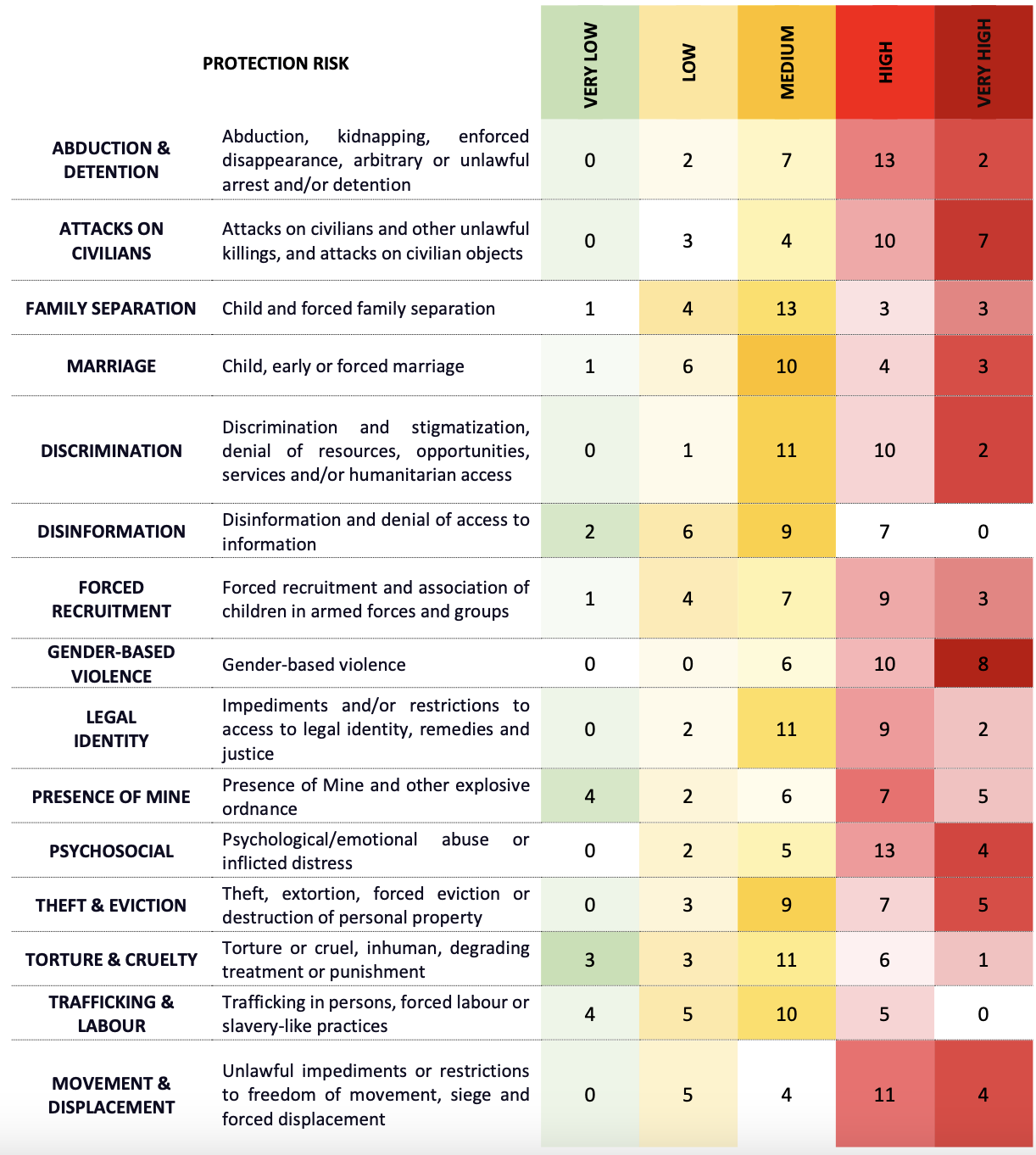Field Protection Clusters
Conflict, violence and human rights abuses remain the main drivers of protection risks. In 2023, more than 160 million people were in need of protection. Amidst growing levels of conflict and violence globally, civilians are often subjected to violence, abuse, coercion and deprivation during armed conflict. There continues to be a blatant disregard for International Humanitarian Law and International Human Rights Law and perpetrators of violations and abuses are rarely held to account, thus encouraging a climate of impunity.
Over the world, armed conflict continues to be characterized by high levels of civilian deaths, injury, displacement, psychological trauma and sexual violence. Alongside such widespread protection risks, we also know that particular groups shoulder disproportionate burdens – children living through conflict for instance are at risk of being separated from their families, recruited into armed groups and denied an education. Women and girls are particularly affected by gender-based violence, described as being among top concerns across cluster operations.
In 2023, the number of people in need of protection across our 31 cluster operations increased by 42% in just two years, driven by new cycles of violence and conflict, such as in Gaza, Sudan, DR Congo, Myanmar, Ukraine, and Haiti combined with protracted crises in places such as Afghanistan, Syria and Yemen.


